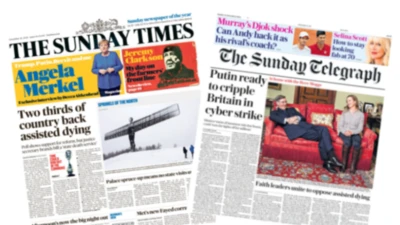We've updated our Privacy and Cookies Policy
We've made some important changes to our Privacy and Cookies Policy and we want you to know what this means for you and your data.
Obama hails Senate vote to back Russia nuclear treaty
The US president has welcomed the US Senate's ratification of a much-delayed nuclear arms treaty with Russia.
Barack Obama said the treaty, which will pave the way for new cuts in US and Russian arsenals, was the most important such deal in almost 20 years.
After months of wrangling in the Senate, the New Start treaty was approved by 71 votes to 26. Russia says it may begin ratifying it on Friday.
Under the deal, Russia and the US will cut deployed nuclear warheads by 30%.
"This is the most significant arms control agreement in nearly two decades and it will make us safer and reduce our nuclear arsenals along with Russia," Mr Obama said.
Despite lengthy protests from a number of congressional Republicans, 13 Republican Senators voted with the Democrats during Wednesday's vote.
Top Republicans, including Minority Leader Mitch McConnell, John McCain and Jon Kyl, had opposed ratification of the treaty.
Mr Obama said the vote also showed that the US political process was not doomed to what he called "endless gridlock".
"The strong bi-partisan vote in the Senate sends a powerful signal to the world that Republicans and Democrats stand together on behalf of our security," he said from the White House.
The treaty must still be ratified by Russia's parliament. Boris Gryzlov, the Speaker of the Duma, the lower house, was quoted by the Interfax news agency as saying it could be debated on Friday.
The treaty would still have to go before the upper house, the Federation Council, which will not happen before the new year.
Russian 're-set'
Correspondents say the ratification will be seen as a foreign policy success for Mr Obama.
After the vote, Secretary of State Hillary Clinton said in a statement: "A responsible partnership between the world's two largest nuclear powers that limits our nuclear arsenals while maintaining strategic stability is imperative to promoting global security."
The , which will replace its lapsed predecessor, Start (Strategic Arms Reduction Treaty), was signed by Barack Obama and his Russian counterpart, President Dmitry Medvedev, in April 2010.
It trims US and Russian nuclear arsenals to 1,550 deployed nuclear warheads - a cut of about 30% from a limit set eight years ago.
The treaty would also allow each side visually to inspect the other's nuclear capability, with the aim of verifying how many warheads each missile carries.
A previous inspection regime - part of the old Start treaty - expired a year ago.
In addition, there will be legally binding limits on the number of warheads and missiles that can be deployed on land, on submarines, and on bombers, at any one time.
Although the treaty won wide support from former US government figures - including a string of former presidents and secretaries of state, senior Republicans were opposed to allowing the outgoing Senate to vote on the treaty.
They argued that the treaty could compromise US national security, handing Russia influence over American missile defence strategy.
In contrast, President Obama has argued that ratification of New Start was vital to US national security and made the agreement a key plank of the president's much-heralded "re-set" of relations with Russia.
Speaking in Mumbai before the vote took place, Mr Medvedev said he was "optimistic" that the US Senate would pass the treaty.
Top Stories
More to explore
Most read
Content is not available








